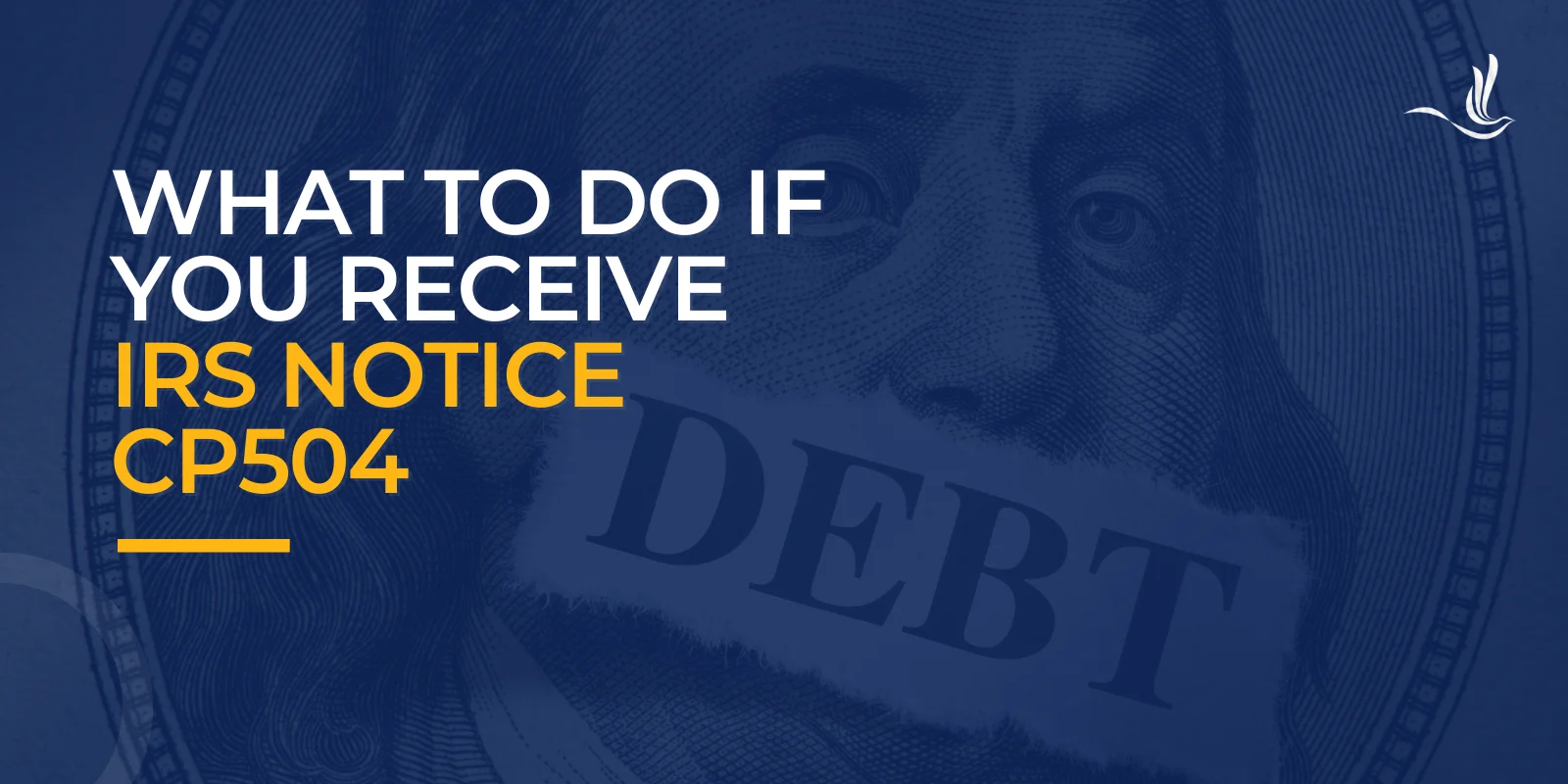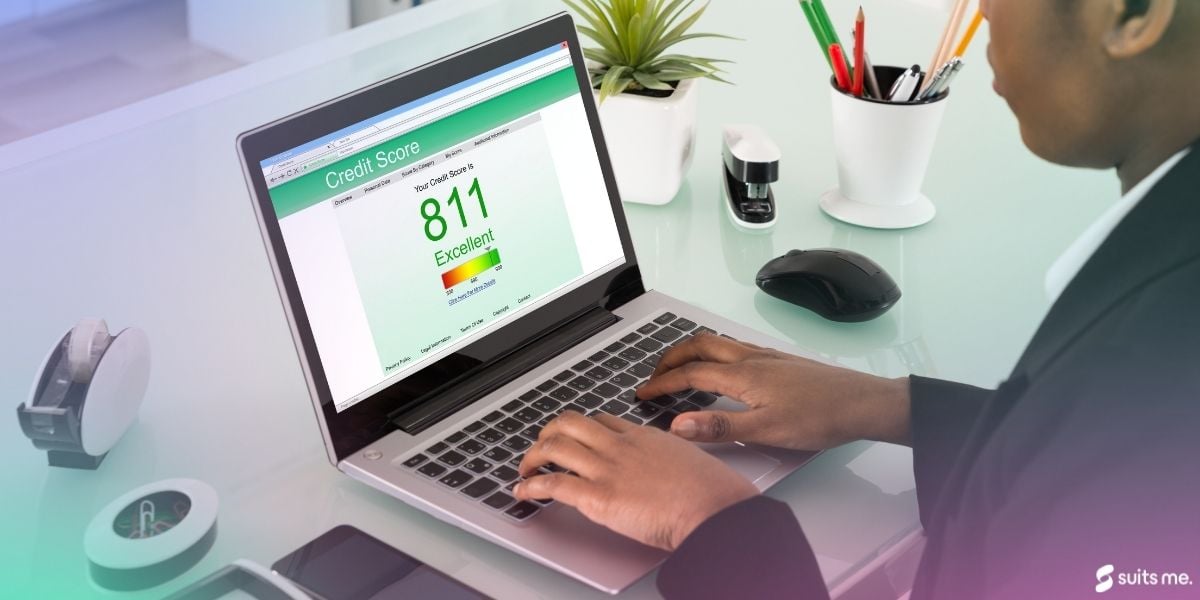Receiving a notice from the IRS can be intimidating, especially if it’s IRS Notice CP504. This is not just a regular reminder; it’s a Final Notice of Intent to Levy. Understanding what this notice means and how to respond promptly is crucial to avoid further penalties and collection actions. Here’s what you need to know and do if you receive IRS Notice CP504.
What Is IRS Notice CP504?
IRS Notice CP504 serves as the IRS’s warning that it intends to levy certain assets to collect unpaid tax debt. This notice is typically sent after previous attempts to collect the debt have gone unanswered. It’s a clear signal that the IRS is escalating its collection efforts. The notice often references unpaid taxes, penalties, and interest, and it informs you that your state tax refund may be levied if you don’t take immediate action. It also warns that additional collection actions, such as bank account levies or wage garnishment, could follow.
Why Is IRS Notice CP504 Serious?
Ignoring IRS Notice CP504 can have severe consequences. Initially, the IRS may seize your state tax refund, but failing to respond could lead to more aggressive measures. These include levying your bank accounts, garnishing your wages, or filing a federal tax lien against your property. Additionally, penalties and interest on your tax debt will continue to accrue, increasing the amount you owe.
Steps to Take If You Receive IRS Notice CP504
If you receive IRS Notice CP504, it’s critical to act fast since this is the last notice sent before collections.
1. Review the Notice Carefully
Start by reading the notice thoroughly. Look for key details, including:
- The tax year(s) in question.
- The deadline to respond or pay.
Make sure the notice is legitimate by checking for signs of authenticity, such as the IRS logo and a contact number that matches the official IRS website.
2. Verify the Debt Amount
Log into your IRS online account to verify the debt amount. Check for discrepancies between the notice and your records. If you believe the IRS made an error, gather supporting documentation to dispute the claim.
3. Contact the IRS Immediately
Act promptly by calling the phone number listed on the notice. Communicating with the IRS shows that you’re taking the issue seriously. It may also prevent further collection actions while you explore resolution options.
4. Evaluate Your Payment Options
Depending on your financial situation, you have several payment options:
- Pay in Full: If possible, pay the total amount owed immediately to avoid further penalties and interest.
- Partial Payment Installment Agreement (PPIA): This option allows you to make monthly payments based on what you can afford.
- Other Installment Agreements: These include short-term or long-term plans to pay your debt over time.
5. Consider Requesting a Penalty Abatement
If penalties make up a significant portion of your debt, you may be eligible for penalty abatement. Common options include First-Time Penalty Abatement. This is available if you’ve had a clean compliance history. You can also request Reasonable Cause Abatement. However, this option requires you to demonstrate a valid reason for failing to meet your tax obligations, such as illness or natural disaster.
6. Seek Professional Tax Assistance (If Needed)
If the situation feels overwhelming or complex, consider hiring a tax professional. A tax attorney, CPA, or tax relief company can help you navigate the resolution process and negotiate with the IRS on your behalf.
How to Avoid Future IRS Notices
Preventing future IRS notices requires proactive measures. Always file and pay your taxes on time. If you cannot afford your tax bill, don’t ignore it. Set up an installment agreement if you anticipate difficulty paying future taxes. Monitor your IRS account regularly to address any issues early. By staying compliant, you can avoid the stress and financial strain of receiving additional IRS notices.
What Happens If You Ignore IRS Notice CP504?
Failing to respond to this notice will escalate the IRS’s collection actions. Initially, your state tax refund may be levied. If you still don’t act, the IRS can proceed with more severe measures, such as levying your bank accounts, garnishing your wages or federal payments, or filing a federal tax lien, which can impact your credit score and ability to sell property. Ignoring the notice only increases the financial and legal consequences.
CP504 Frequently Asked Questions
When it comes to IRS notices, CP504 can be the most intimidating and threatening. Here are some FAQs on the notice.
How long do you have to respond to IRS Notice CP504?
An IRS CP504 notice is a final notice of intent to levy and provides a 30-day period for you to respond. If you receive this notice, you should either pay the outstanding balance, set up a payment plan, or resolve the issue in another way during this 30-day period. If you need more time or have questions, contacting the IRS or a tax professional is recommended.
How do I respond to IRS Notice CP504?
This depends on your next course of action. If you can pay the balance owed, simply by through your IRS online account, via check or money order using the payment coupon in the notice, or over the phone. If you need to request a payment plan or other form of tax relief, you can typically do this online through your IRS online account or by calling the number on the notice to discuss payment options. If you believe the amount due is incorrect, you can contact the IRS to dispute the debt. Be ready to provide supporting documents or evidence to substantiate your claim. If you’re unsure how to handle the situation, consider consulting a tax professional or tax attorney for guidance.
What happens if the IRS puts a lien on your house?
If the IRS places a lien on your house, it means the government has a legal claim to your property due to unpaid tax debt. The lien attaches to your home, which means the IRS has priority over other creditors if the property is sold. It will need to be paid off before you can transfer ownership. While the lien itself does not mean immediate foreclosure, it gives the IRS the right to take further actions, such as garnishing wages or seizing assets, to collect the debt. Once you’ve paid off your debt or reached a settlement, the IRS will file a “Certificate of Release of Federal Tax Lien,” removing the lien from your property.
Does IRS Notice CP504 come certified?
Typically, the IRS sends the CP504 notice via certified mail to ensure you receive it and are informed of the requirement to pay or make an arrangement within 30 days. By sending it certified, the IRS can confirm that you received the notice. The letter will be sent to your last known address, usually the mailing address listed on your most recently filed tax return.
Tax Help for Those Who Receive IRS Notice CP504
Receiving IRS Notice CP504 is a serious matter that requires immediate attention. By understanding what the notice entails and taking swift action, you can resolve your tax debt and avoid more severe collection actions. Whether you choose to address the debt yourself or seek professional help, the key is to act now. Optima Tax Relief is the nation’s leading tax resolution firm with over $3 billion in resolved tax liabilities.
If You Need Tax Help, Contact Us Today for a Free Consultation
Publisher: Source link











